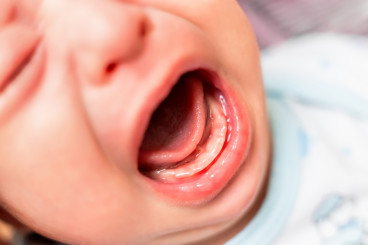Dentition
Dentition refers to the arrangement, type, and number of teeth in the mouth, which plays a crucial role in oral function, aesthetics, and overall health. The term encompasses various aspects of tooth development, positioning, and the natural variations that occur within different species, including humans. Understanding dentition is essential for dental health professionals, as it influences treatment planning, diagnosis, and patient care.
Types of Dentitions typically exhibit two types of dentition throughout their lives:
Primary Dentition: Also known as "baby teeth," primary dentition consists of 20 teeth that usually emerge between the ages of 6 months and 3 years. These teeth are smaller, whiter, and have thinner enamel compared to permanent teeth. Primary dentition is crucial for several reasons:
Facilitating Speech Development: The presence of baby teeth aids in the formation of sounds and words.
Guiding Permanent Teeth: These teeth serve as placeholders for the permanent teeth that will erupt later, ensuring proper alignment.
Aiding in Chewing: Baby teeth allow for the proper mastication of food, which is vital for nutrition.
Permanent Dentition: Following the loss of primary teeth, permanent dentition develops, comprising 32 teeth, including incisors, canines, premolars, and molars. This dentition usually begins to emerge around the age of 6 and continues into late adolescence, with wisdom teeth commonly erupting between ages 17 and 25. Permanent teeth are larger and more durable, designed to withstand the forces of chewing over a lifetime.
The development of permanent dentition is marked by several key features:
Incisors: The front teeth that are sharp and designed for cutting food.
Canines: Pointed teeth next to incisors that help tear food.
Premolars: Flat-topped teeth behind canines used for grinding and crushing food.
Molars: The largest teeth in the back of the mouth, optimized for grinding food into smaller pieces.
Factors Affecting Dentition
Several factors can influence an individual's dentition, including:
Genetics: Genetic predisposition can affect tooth size, shape, and the timing of dental eruption. Some individuals may inherit traits leading to conditions like crowding or spacing of teeth.
Nutrition: A balanced diet rich in vitamins and minerals is vital for healthy teeth and gums. Nutritional deficiencies during the development of primary or permanent teeth can lead to enamel defects or delayed eruption.
Oral Hygiene: Good oral hygiene practices, including regular brushing and flossing, significantly impact the health of the dentition. Poor oral hygiene can lead to dental caries (cavities), gum disease, and tooth loss.
Habits: Habits such as thumb-sucking, prolonged bottle use, or mouth breathing can negatively affect the alignment and health of teeth.
Environmental Factors: Exposure to fluoride, either through water supply or dental products, can strengthen enamel and protect against cavities, while excessive fluoride can lead to dental fluorosis.
Importance of Dentition in Dental Health
Understanding dentition is crucial for several reasons:
Diagnosis and Treatment Planning: Dentists assess dentition to identify problems such as misalignment or decay, allowing for appropriate treatment options, including orthodontics, fillings, or extractions.
Restorative Dentistry: Knowledge of dentition informs restorative procedures, such as crowns, bridges, or dentures, ensuring they fit properly and function effectively.
Preventive Care: Regular dental check-ups monitor the health of dentition, helping to prevent issues before they become severe.
Conclusion
In summary, dentition is a foundational aspect of dental health, encompassing the types, arrangement, and development of teeth. Its implications extend beyond aesthetics to include functionality, nutrition, and overall well-being. A comprehensive understanding of dentition aids dental professionals in delivering effective care and enhancing patient outcomes.
Discover affordable dental treatments at Dr. BestPrice, your dental auction platform for essential care.



